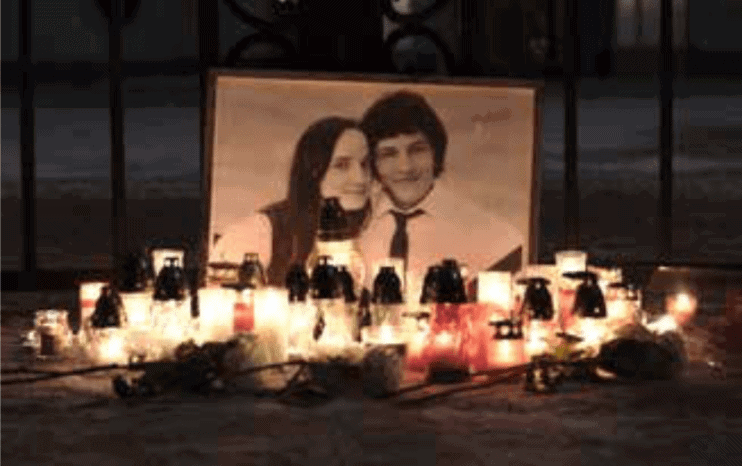Chris Elliott
6 April 2018
The assassination of an investigative Slovakian journalist and his fiancée brought people onto the streets and the government of this small eastern European country to the brink of collapse.
Ján Kuciak and his fiancée, Martina Kušnírová, were discovered shot dead in the home they shared after worried relatives alerted police, saying it had been a week since they had heard from the couple, according to the Guardian. Kuciak, 27, was understood to be investigating a high-level tax fraud involving businessmen, politicians and the mafia when they were murdered on 25 February. His investigations included those of some businessmen with alleged links to the ruling party.
Robert Fico, the Slovak Prime Minister for the last six years, resigned after weeks of public protests.
Slovakia is one of the so-called Visegrad countries – a group that also includes Hungary, Poland and the Czech Republic – all states led by some of Europe’s most prominent Eurosceptic politicians and who, like Hungary’s Viktor Orban, have targeted independent media.1
Aidan White, outgoing Director of the EJN, told journalists and policymakers at a conference of the Organisation for Security and Co-operation in Europe in Kosovo on March 16th that the public demonstrations in Bratislava were clear evidence that people in Europe were ready to fight for journalism they can trust.
“This was a show of public anger over the killing of a courageous reporter,” he said. “It is also clear evidence that people want journalism they can trust and will vigorously defend it.”
In the murder investigation Slovakia has invited Europol, the EU agency that fights cross-border crime, to send experts to Slovakia2 to help with forensics, while the FBI, Czech and Italian police are also assisting their Slovak counterparts.

The Guardian quoted Claude Moraes, a British Labour MEP who was co-chair of a European parliament delegation to Bratislava just after the killings, as saying it was essential that there should be a joint investigation with Slovak authorities and Europol into the double murder.
“All the indications are that it is an organised ma a- style killing and we think not enough is being done,” he told The Guardian. The Slovak authorities “have to open up the investigation…Outside experts needed to play a leading role in the investigation”, Moraes said, because of the “existential elements”, the murder of a journalist and pre-existing public concerns about corruption and conflicts of interest.
The MEPs want Europol to co-lead the joint team, rather than be relegated to a support role that does not allow its officers access to all files.
The deaths of the couple come just months after a powerful car bomb killed the anti-corruption campaigner and journalist Daphne Caruana Galizia. Three men have now been charged with her murder.
Photos: CC BY-SA 3.0 Peťo Tkáč